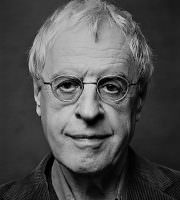About Charles Simic
Charles Simic, (born in Belgrade on May 9, 1938–January 9, 2023) was an American poet, essayist, translator, and university professor. Elected a Fellow of the American Academy of Arts and Letters, then Chancellor of the Academy of American Poets, then Poet Laureate and poetry Consultant of the United States with the Library of Congress from 2007 to 2008. He said, “I am especially touched and honored to be selected because I am an immigrant boy who didn’t speak English until I was fifteen.” In 1959, The Chicago Review published one of his first poems. Charles Simic's first collection of poems, What the Grass Says, was published in 1967 by Kayak Press in San Francisco. His stature as a major poet in American literature was confirmed by the Pulitzer Prize in poetry awarded to him for his collection of poems, The World Doesn't End. He was also a professor emeritus at the University of New Hampshire, where he taught literary criticism and creative writing from 1974 to 2018. But, Charles Simic became known particularly as a minimalist poet, writing laconic, enigmatic poems similar to Japanese Buddhist haiku. Apart from poetry he has written various essays on various subjects such as Jazz, philosophy, aesthetics. Finally, he disseminated Yugoslav poetry by translating the poets of his country of origin. He has written numerous articles in prestigious journals such as The New York Review of Books, The New Yorker, The Harvard Review and The Georgia Review.He was the author of nineteen books of poems and nearly that many of both criticism and translation of works from Serbo-Croatian languages. Simic was born in Yugoslavia, and his childhood was marked by the events of World War II. He moved to Paris with his mother, a music teacher, when he was fifteen. A year later, they joined his father, after a ten-year separation, in New York, and then all moved to a suburb of Chicago. With characteristic dark humor, Simic said of arriving in America, “My travel agents were Hitler and Stalin.”
Simic attended the University of Chicago, working nights in an office at the Chicago Sun-Times, but was drafted into the U.S. Army in 1961 and served until 1963. He earned his bachelor’s degree from New York University in 1966. Though he moved to New Hampshire in 1973 to take a teaching job, his sensibility is decidedly urban, full of images from the war-torn Belgrade of his youth and the seedy New York hotels in which he stayed up all night writing his first poems: “I am not rapturous about nature, although I live in nature. I don’t have some sort of nature poem where I idealize a sunrise or climbing a mountain or being outdoors.” The city glimpsed through the haze of memory (“My memory is so poor that everything appears poorly lit and full of shadows”) is Simic’s milieu, and even his more rural poems seem to speak from the voice of the city poet.
Simic’s love of America art forms such as film noir, jazz, and the found-object collages of outsider artists like Joseph Cornell infiltrate his poetry. In this sense, he shows us what is best about American art. But he is also scathing about the self-centeredness he sees in much American writing: “For most poetry today, history does not exist. One can read literally hundreds of pages of contemporary poetry without encountering any significant aspect of our common twentieth-century existence.”
Simic has said he probably would have wound up as a gangster, or in a low-grade manual labor job, had he managed to survive and grow up in postwar Belgrade, where he was a below-average student and a troublemaker. He recalls scavenging the rubble of Belgrade as a boy, looking for gunpowder to trade for a “particularly tasty can of American corned beef.” Simic believes it is the lyric poet’s responsibility to bear witness, to record his or her reactions to a historical moment so that there is an alternative narrative to the often distorting propaganda written for or by politicians: “The poet like anyone else is part of history, but he or she ought to be the conscious part. That’s the ideal... If history, as it comes through the historian, retains, analyzes, and connects significant events, in contrast, what poets insist on is history of‘unimportant’ events. In place of historian's ‘distance,’ I want to experience the vulnerability of those participating in tragic events.”
Browse all poems and texts published on Charles Simic
Poetry is an orphan of silence. The words never quite equal the experience behind them....
The secret wish of poetry is to stop time.









